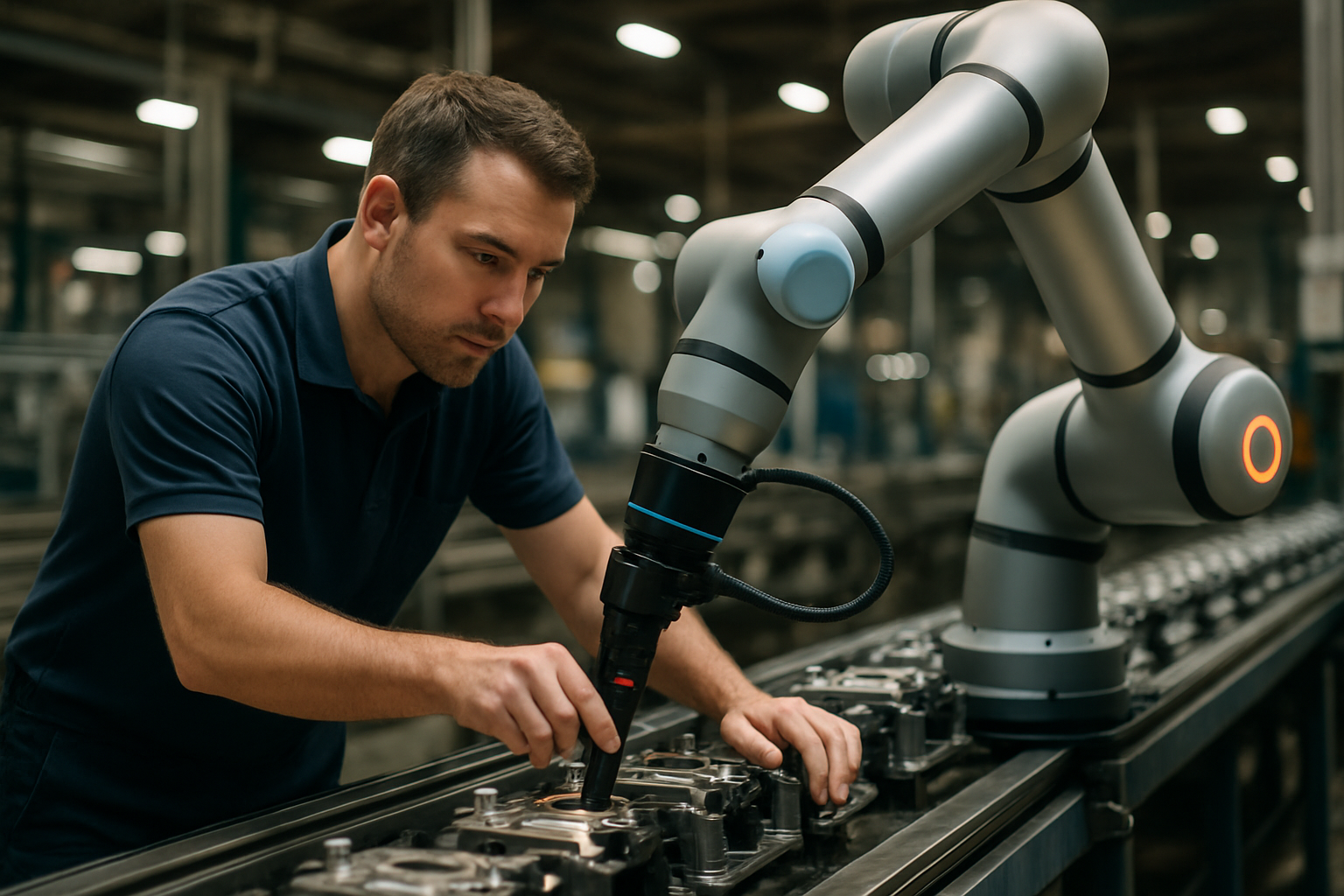Adaptive Manufacturing: Revolutionizing Production Flexibility
The modern industrial landscape demands unprecedented levels of agility and responsiveness. Adaptive manufacturing, a cutting-edge approach to production, is emerging as a game-changing solution for businesses seeking to thrive in volatile markets. This innovative methodology combines advanced technologies, data-driven insights, and flexible production systems to create highly responsive manufacturing environments.

At its core, adaptive manufacturing leverages a combination of advanced technologies, including smart sensors, machine learning algorithms, and reconfigurable production lines. These elements work in concert to create a dynamic production environment that can swiftly pivot to meet evolving customer needs and market conditions. The result is a manufacturing ecosystem that’s not just reactive but proactive, capable of anticipating and adapting to changes before they impact production or profitability.
The Technological Backbone
The foundation of adaptive manufacturing lies in its technological infrastructure. Smart sensors and Internet of Things (IoT) devices are deployed throughout the production floor, continuously collecting data on machine performance, production rates, and product quality. This real-time data is then processed using advanced analytics and machine learning algorithms, providing manufacturers with actionable insights into their operations.
Cloud computing plays a crucial role in this ecosystem, enabling the seamless integration of various data sources and facilitating rapid information sharing across different departments and even geographical locations. This interconnectedness allows for more informed decision-making and faster response times to market changes or production issues.
Another key technological component is modular and reconfigurable production equipment. These flexible systems can be quickly repurposed or rearranged to accommodate different product specifications or production volumes, eliminating the need for extensive retooling or long changeover times.
Benefits and Competitive Advantages
Adaptive manufacturing offers numerous benefits that can significantly enhance a company’s competitive position. One of the most prominent advantages is increased agility in responding to market demands. Manufacturers can quickly adjust their production lines to introduce new products, modify existing ones, or scale production volumes up or down as needed. This flexibility allows companies to capitalize on emerging market opportunities more rapidly than their competitors.
Moreover, adaptive manufacturing can lead to substantial improvements in operational efficiency. By leveraging real-time data and predictive analytics, manufacturers can optimize their production processes, reduce waste, and minimize downtime. This not only lowers production costs but also enhances overall product quality and consistency.
The customization capabilities inherent in adaptive manufacturing also open up new revenue streams. Businesses can offer personalized products at scale, catering to the growing consumer demand for unique, tailored goods without sacrificing production efficiency.
Challenges in Implementation
While the benefits of adaptive manufacturing are compelling, implementing this approach is not without challenges. One of the primary hurdles is the significant upfront investment required in technology and infrastructure. Companies must be prepared to invest in advanced machinery, sensors, data analytics platforms, and training for their workforce.
Another challenge lies in managing the complexity of a highly flexible production environment. Coordinating various systems, ensuring data integrity, and maintaining consistent quality across different product configurations can be daunting tasks. This complexity necessitates robust management systems and a workforce skilled in both traditional manufacturing techniques and digital technologies.
Additionally, cybersecurity becomes a critical concern as manufacturing systems become more interconnected and data-driven. Protecting sensitive production data and ensuring the integrity of connected systems against cyber threats is paramount in an adaptive manufacturing environment.
Future Trends and Innovations
As adaptive manufacturing continues to evolve, several emerging trends are shaping its future trajectory. One of the most promising developments is the integration of artificial intelligence (AI) and machine learning algorithms that can autonomously optimize production processes and predict maintenance needs with increasing accuracy.
Another exciting trend is the use of digital twins – virtual replicas of physical production systems. These digital models allow manufacturers to simulate and test different production scenarios in a risk-free virtual environment before implementing changes on the actual production floor.
The convergence of adaptive manufacturing with other advanced technologies, such as 3D printing and augmented reality, is also opening up new possibilities. For instance, 3D printing technologies are enhancing the ability to produce customized parts on-demand, while augmented reality is being used to improve worker training and provide real-time guidance during complex assembly processes.
Adaptive Manufacturing Insights
• Implement a modular production line design to enable quick reconfigurations
• Invest in comprehensive data collection and analytics capabilities
• Develop a culture of continuous learning and adaptability among your workforce
• Prioritize cybersecurity measures to protect your interconnected systems
• Explore partnerships with technology providers to stay at the forefront of innovations
In conclusion, adaptive manufacturing represents a transformative approach to production that aligns perfectly with the demands of today’s dynamic markets. By embracing this methodology, manufacturers can achieve unprecedented levels of flexibility, efficiency, and responsiveness. While the implementation challenges are significant, the potential rewards in terms of competitive advantage and long-term sustainability make adaptive manufacturing a compelling strategy for forward-thinking businesses. As technology continues to evolve, those who successfully adopt and master adaptive manufacturing principles will be well-positioned to lead in the ever-changing industrial landscape of the future.





